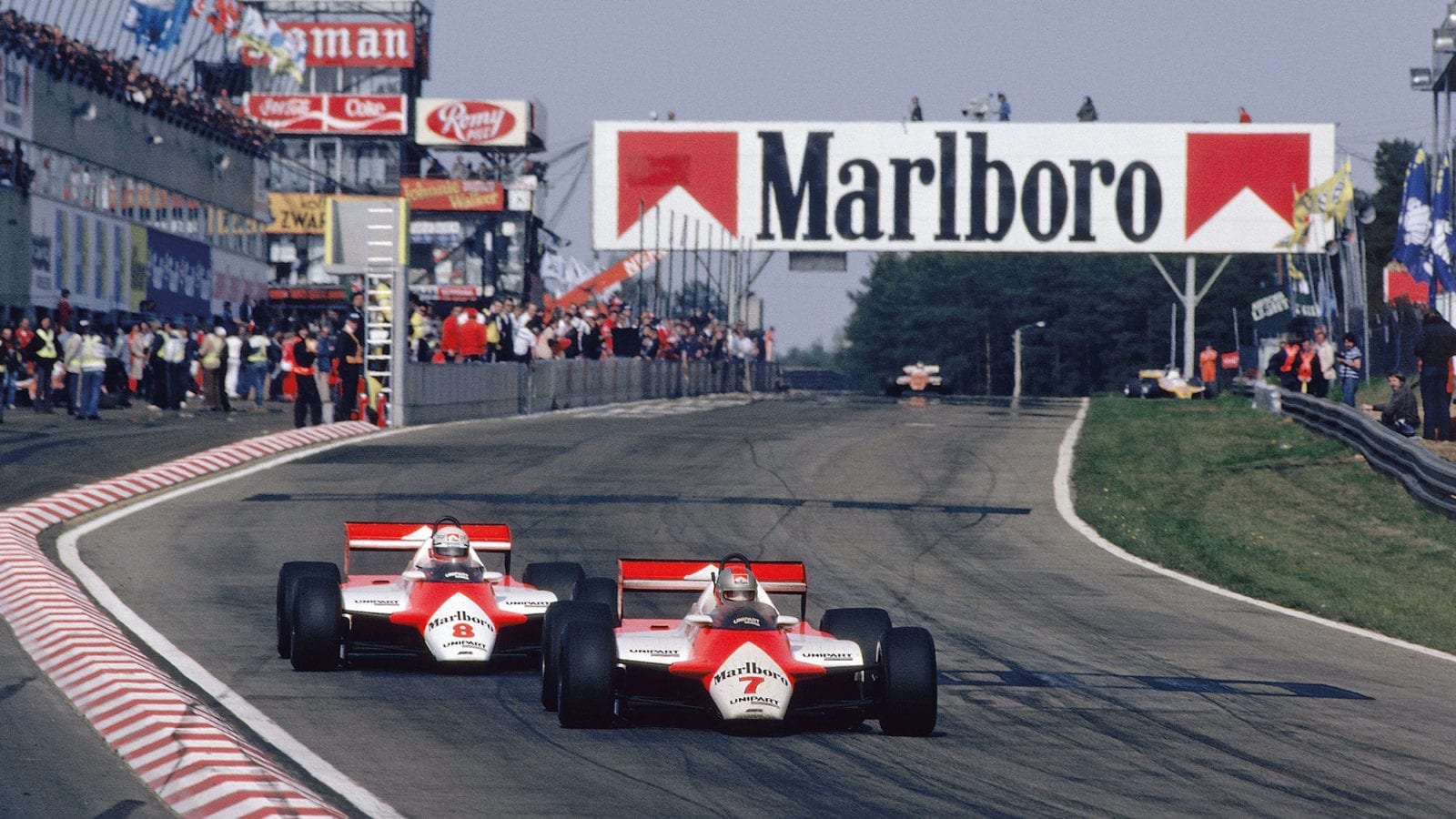John Watson on Niki Lauda: My Greatest Rival
Team-mates at Brabham and McLaren, this was a psychological squaring up with the Austrian sure he was number one. But results swung the pecking order

Whilst Lauda usually had the upper hand, he was forced to support Watson in '82 title challenge
DPPI
My rivalry with Niki at Brabham in 1978 and McLaren in 1982 to ’83 was not so much about the racing, more how adroit he was within the team, his ability to swing the lead in his favour. I always knew I was as fast as him, and more creative as a racer, but he was very good at getting people around him. I believed the sport was about two guys going toe to toe, the quickest being number one, but Formula 1 is far more complex than that, and Niki was there to race for himself. He brought Parmalat money to Brabham, he was twice a world champion, and that gave him leverage in the team.
He was clever in the way he went about his business – races are often won before the cars get to the grid. At Monaco in ’78 I qualified second, using three sets of tyres, but Niki had used four and was held up by traffic on his last run, so Bernie told the guys to put my fourth set on Niki’s car. He qualified third and finished second so the dynamic in the team had changed.
I liked Niki; he was good company, we got on well, so what happened at Paul Ricard in July came as a shock. I was on pole, Niki third, and Bernie asked me, if I was leading on the last lap would I move over for Niki?
I was honest with him, said I wasn’t prepared to do that, and I realised later on it was better to be clever than to be honest because it was unlikely those Brabhams would be running first and second on the last lap. As rivals within the team Niki was very good technically, putting the car in the window that suited his style. When I drove his car in a test it had better turn-in than mine, Gordon Murray was reluctant to explain, and I realised there was no sharing of information.
If Brabham was the Love Story film part one, then McLaren was part two. When Niki first tested the car he persuaded John Barnard to fit a larger steering wheel, which made the cockpit tight, so he’d started to build the team around him, swing the lead in his favour. Having a great rival raises your game, takes you to a higher level, and at the end of ’82 we were both in with a shot at the championship. I’d outraced Niki in Belgium and Detroit, coming from the back to win. Overtaking was not his strength. He’d often hesitate, loathe to make a decisive pass.
In Las Vegas, Ron Dennis told him I had a better chance of the title, he should move over if I was behind him, and quicker, and for the first time he realised it wasn’t Team Lauda, it was Team McLaren. I saw that Niki was not a fighting, aggressive driver; he didn’t create opportunities, and that was how to beat him. He had his way of racing and was set in that way. His mantra for life, in a racing car, flying a plane, he would not do anything unless he had tried it before, knew that it worked, even when he realised a tyre option I had chosen was better.
The rivalry was not personal; we stayed friends, and as Ron Dennis was fond of telling us, we were simply employed as racing drivers. The team was always the most important thing.”
